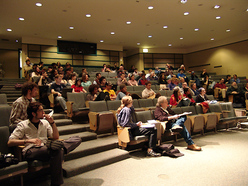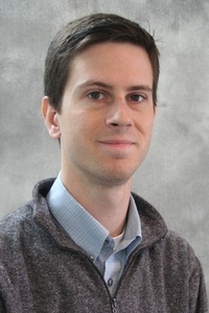|
By Katie Han '17
Professor Hays then began describing his own experiences with computer science when he was our age. “CS classes in my high school were terrible. The quality of education in the 90’s was bad, and I learned nothing of substance for my future career.” He continued his education at Georgia Tech, where he took an introductory sequence very similar to Brown’s CS17/18 now. The trajectory of these courses is unusual, exposing the students to functional programming through unpopular languages first and then transitioning into the more mainstream languages, such as Java, rather than jumping into the popular object-oriented programming (OOP) straightaway. Functional programming refers to the style of coding that treats the procedures to be carried out by the computer as mathematical functions. As a result, only the inputs and outputs of the computation are recognized, not the state of the program. On the other hand, OOP utilizes a data type called “objects,” which contains both data and code of instructions. In other words, with OOP, programmers can create more complex programs that model the real world.  Prof. Hays attributes incoming freshmen's programming proficiency to online learning environments like Codecademy. [image via] Prof. Hays attributes incoming freshmen's programming proficiency to online learning environments like Codecademy. [image via] However, he noted the general change in the scene of computer science students from his college days to now. He described the freshmen to be very self-motivated and proficient in programming, especially with the widely available self-education opportunities, such as Codeacademy. He remembered a specific time when a student asked in class, “Are the arguments passed by reference or passed by value?” This question caught him by surprise, as it is not what someone with no programming experience would say. He added that though both Georgia Tech and Brown have talented and capable students, Brown students carry a unique feel—the students taking the CS classes, whether potential concentrators or not, are genuinely interested in the subject. As an intended CS concentrator at Brown University, I empathize with his statement. Brown provides a distinctive, open academic setting for students to explore and pursue their passions; in light of the recent worldwide expansion of the field of computer science, CS at Brown clearly reflects the true advantages of the university’s curriculum.
0 Comments
Leave a Reply. |


